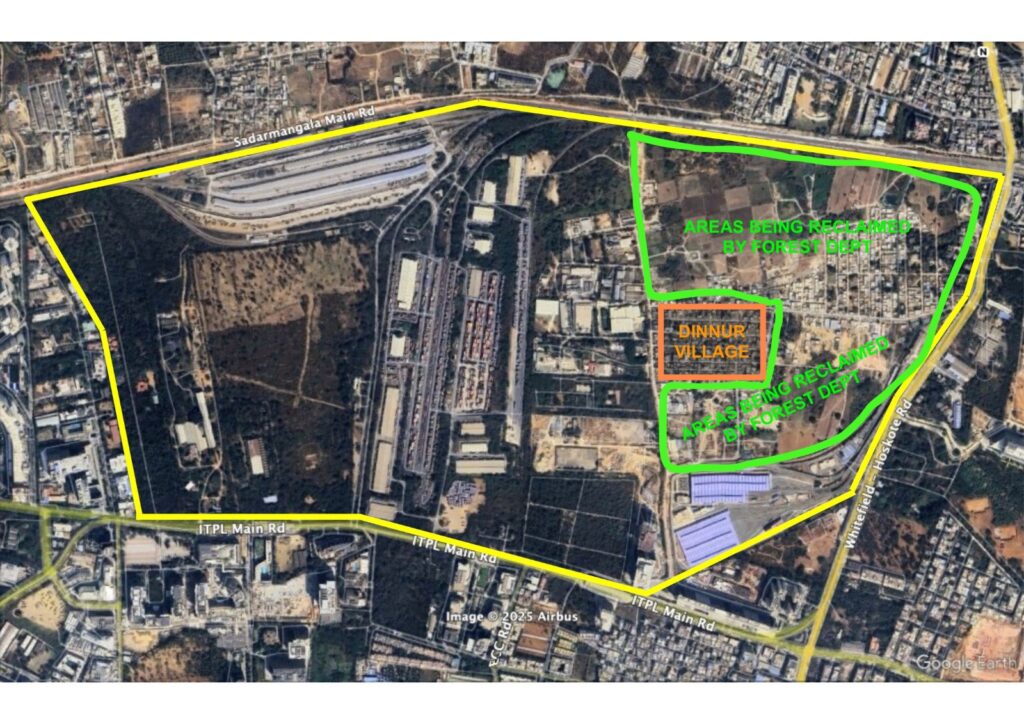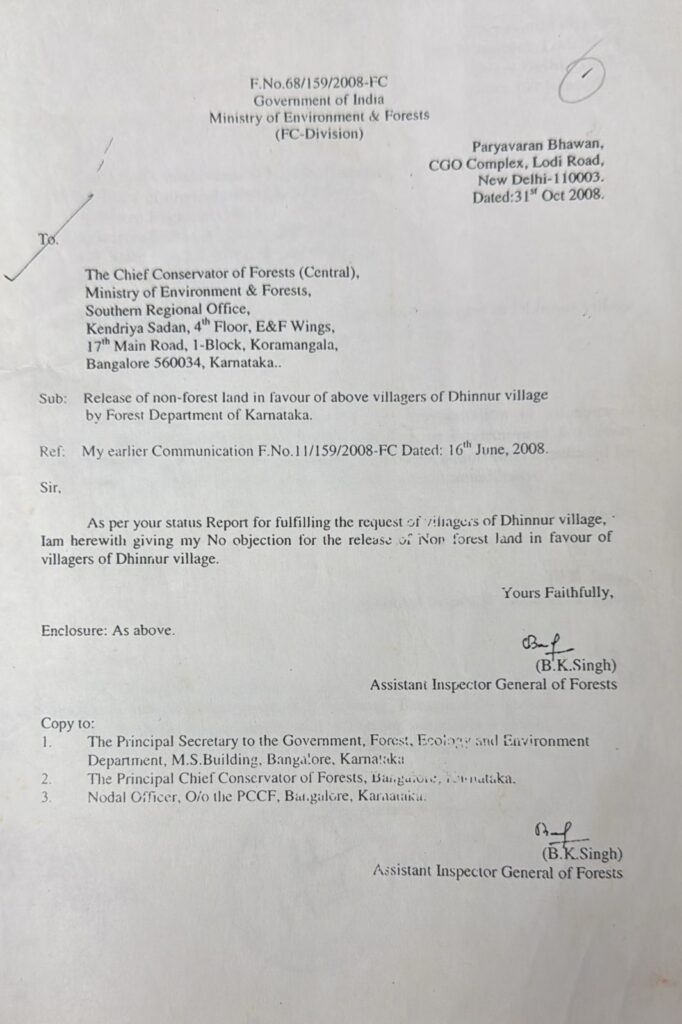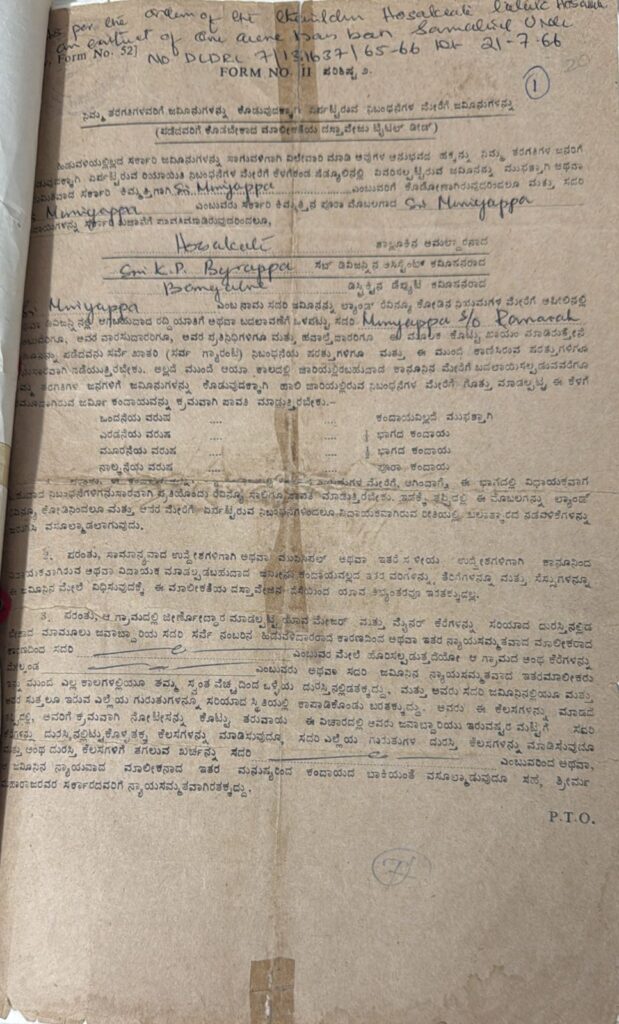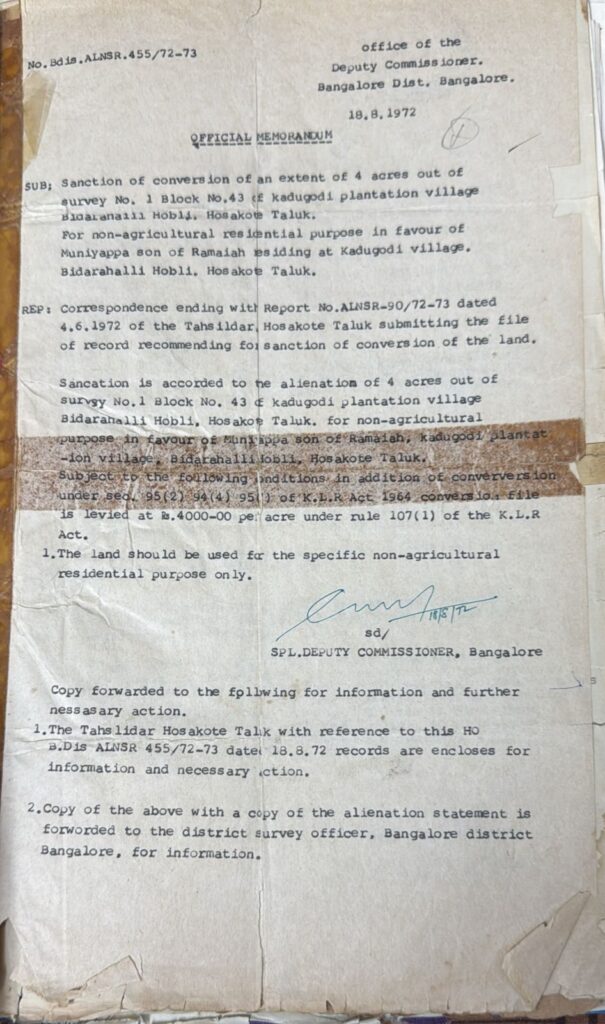
Google Earth image
Curious case of 64 acres of land in Kadugodi under Karnataka Forest Department’s anti-encroachment drive
Bengaluru
As the Karnataka Forest Department reclaims forest land in Kadugodi, Bengaluru, a curious case has emerged involving 64 acres identified as encroached forest land, setting the stage for a long battle between the Forest Department and 21 villagers.
So far, the department has reclaimed 120 acres of forest land in the Kadugodi Reserve Forest area. The operation, which began on June 23, is still ongoing. The 711-acre area was notified as reserve forest in 1896 by the erstwhile Government of Mysore. The forest department initiated action after Supreme Court on May 25 directed the Chief Secretaries of all the States and Union Territories to handover the possession of forest lands held by revenue department.
The department maintains that the 64 acres currently claimed by villagers from Dinnur are also forest land and will eventually be reclaimed. However, due to existing settlements, the department is not taking immediate action on that portion.
Documents accessed by BLR.POST reveal that in June 2008, the Assistant Inspector General of Forests from the Union Ministry of Environment and Forests wrote to the Chief Conservator of Forests (Central), Karnataka, regarding the release of ‘non-forest land’ in favour of Dinnur villagers. The letter stated:
“I am directed to enclose herewith the representation of villagers of Dinnur village to the Karnataka Minister of Environment and Forests. Kindly provide the status report in this regard so that necessary action can be taken immediately.”
In October 2008, he again wrote the Chief Conservator of Forest saying “As per your status report for fulfilling the request of villagers of Dinnur village, I am herewith giving no objection for the release of non-forest land in favour of villagers of Dinnur village.”

Another document indicates that in 1966, the Hoskote Tahsildar, acting on directions from the Deputy Commissioner, granted land in the Kadugodi Plantation Area to the villagers. By 1972, the 64-acre land was converted from agricultural to non-agricultural use.


What villagers say
“The land was granted to 21 villagers by the State, and this cannot be disputed. We have sufficient documentation. Yet the Forest Department is branding us as encroachers.” The villager also pointed out that in 2020, the Assistant Inspector General of Forests again wrote to the state department seeking certified documents on the same land. “Even after the Union Ministry’s 2008 direction to act on the villagers’ plea, the state Forest Department labelled us as encroachers,” the villager claimed.
A senior forest official, however, maintained that any settlements within the 711-acre reserve are encroachments. “The State government has no legal authority to grant forest land. Only the Union Forest Ministry can direct the diversion of forest land for other purposes,” he said. He added that 44 acres of the reserve were handed over to Bangalore Metro Rail Corporation Limited (BMRCL) for its Whitefield depot, under directions from the Union Ministry. While the 64-acre Dinnur settlement is also deemed encroached, the department will not demolish homes immediately. “Strict action will be taken soon,” the official said.
However, environmentalists have raised strong objections to land transfers involving the BMRCL. They argue that India needs a zero-tolerance and no-nonsense approach to preserving its remaining forest cover. “The CAMPA (Compensatory Afforestation Fund Management and Planning Authority) law is disastrous. What’s the logic in destroying a mature forest in one area and compensating it with saplings elsewhere? The microclimate and ecological losses are irreplaceable. The plantation success rate is just 10%. This law needs to be repealed,” an environmentalist who did not wish to be named in the report said.
“Provisions under the Indian Forest Act that permit the diversion of forest land for non-forest use must be repealed. With climate change impacts worsening, we must preserve what remains. These bad laws are often misused by wealthy or political interests and do not benefit the nation or society,” he added.
Read more Bengaluru development news here
